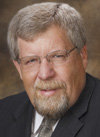
Question
I am expanding my Web page content. Are there certain rules to consider when describing my practice?
Answer
Lawyers today have become very aggressive in using the Internet to advertise their services. Most firms have a website and Web page that potential clients can visit to learn about the law firm and its lawyers. Web pages have become the equivalent of interactive yellow pages. Many lawyers also use social media like Facebook and LinkedIn to advertise that they are engaged in the practice of law and to identify the types of legal services they provide. There are requirements that must be followed for all these advertising forums.
SCR 20:7.1 (part of the Wisconsin Rules of Professional Conduct) lays out what types of statements are considered impermissible in the context of communications pertaining to a lawyer’s services. The rule applies whether a lawyer is communicating in a traditional format or a new social media format. The rule provides that statements about the lawyer’s practice may not be false or misleading and defines false or misleading:
“SCR 20:7.1 Communications concerning a lawyer’s services.
A lawyer shall not make a false or misleading communication about the lawyer or the lawyer’s services. A communication is false or misleading if it:
(a) contains a material misrepresentation of fact or law, or omits a fact necessary to make the statement considered as a whole not materially misleading;
(b) is likely to create an unjustified expectation about results the lawyer can achieve, or states or implies that the lawyer can achieve results by means that violate the Rules of Professional Conduct or other law; or
(c) compares the lawyer’s services with other lawyers’ services, unless the comparison can be factually substantiated; or
(d) contains any paid testimonial about, or paid endorsement of, the lawyer without identifying the fact that payment has been made or, if the testimonial or endorsement is not made by an actual client, without identifying that fact.”
Of most concern under this rule are statements a lawyer makes in either a traditional advertising forum or an Internet- or social media-based forum that exaggerate the lawyer’s practice or the lawyer’s law firm. For example, a lawyer might say that he or she is in a practice with other lawyers or has associates in his or her practice when actually the lawyer is practicing as a sole practitioner. This would be a false statement and thus would violate SCR 20:7.1.
 Dean R. Dietrich, Marquette 1977, of Ruder Ware, Wausau, is past chair of the State Bar Professional Ethics Committee. He can be reached at ddietrich@ruderware.com.
Dean R. Dietrich, Marquette 1977, of Ruder Ware, Wausau, is past chair of the State Bar Professional Ethics Committee. He can be reached at ddietrich@ruderware.com.
Types of Communications to Avoid: A South Carolina Example
A public reprimand issued to a lawyer in South Carolina describes statements that the South Carolina disciplinary authority determined violated that state’s rules and thus will help lawyers identify types of communications to avoid. In addition to reprimanding the lawyer, the disciplinary authority required the lawyer to pay the cost of the proceeding and a $1,000 fine and to complete an ethics program on advertising.
The disciplinary authority determined that the lawyer made exaggerated and factually unverified statements about his experience and his law firm. The lawyer indicated that he had been working in the legal environment for more than 20 years, when he had been practicing for only seven years and only had additional experience clerking for a law firm. The lawyer also indicated that employees spoke Spanish at his firm, but no one in the office could actually speak Spanish. The lawyer stated that attorneys in the firm focused their practice in one area of law, but the firm’s Web page listed 27 distinct practice areas. The lawyer stated that lawyers in the firm represented clients at every level of the state court system but the three lawyers in the firm did not have that breadth of experience. The lawyer also stated that lawyers in the firm were familiar with products liability cases, but none of the lawyers had handled a case of that type. The lawyer put on the website that the firm had offices in two states, but it actually only had a referral arrangement with firms located in other states.
NEED ETHICS ADVICE?
As a State Bar member, you have access to informal guidance and help in resolving questions regarding Wisconsin’s Rules of Professional Conduct for Attorneys.
Ethics Hotline. To informally discuss an ethics question, contact the State Bar ethics counsel, Timothy Pierce. He can be reached at (608) 250-6168 or (800) 444-9404, ext. 6168, Monday through Friday, 9 a.m to 4 p.m.
The misleading statements made by the South Carolina lawyer are helpful examples of communications, made in advertising, that fail to accurately describe the facts that exist.
The disciplinary authority based its decision to impose a public reprimand and associated requirements on these misstatements and on the lawyer’s failure to comply with certain filing requirements in the South Carolina Rules of Professional Conduct.
Conclusion
Lawyers must be careful not to exaggerate their law practice and experience when developing advertising for their practice and their law firm. Lawyers should carefully review SCR 20:7.1 to ensure compliance with its requirements.
